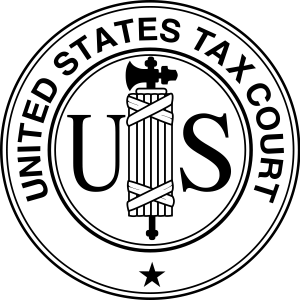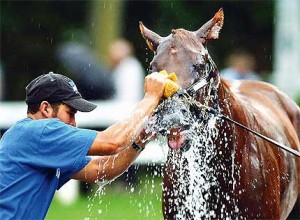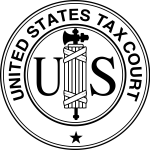 The proper standard for a qualified appraisal in the façade easement context has been vigorously contested by the IRS in recent years. In a rare reversal on reconsideration, the Tax Court adopted the Second Circuit Court of Appeals’ view of the necessary elements for a qualified appraisal in the context of these easement deductions. In short, the Court affirmed that the regulatory standard for a qualified appraisal requires only a method of valuation and a basis for valuation.
The proper standard for a qualified appraisal in the façade easement context has been vigorously contested by the IRS in recent years. In a rare reversal on reconsideration, the Tax Court adopted the Second Circuit Court of Appeals’ view of the necessary elements for a qualified appraisal in the context of these easement deductions. In short, the Court affirmed that the regulatory standard for a qualified appraisal requires only a method of valuation and a basis for valuation.
The decision under reconsideration was Friedberg v. Commissioner , TC Memo. 2011-238. In the reversal the Tax Court observed its practice of following the precedent of the U.S Court of Appeals to which a case may be appealed, first established in Golsen v. Commissioner, 54 T.C. 742 (1970).
In 2002, the taxpayers, Mr. Friedberg and Ms. Moss, purchased a townhouse in Manhattan’s Upper East Side Historic District for $9,400,000. In 2003, the National Architectural Trust (NAT) contacted Mr. Friedberg and asked him to donate a façade easement. Mr. Friedberg agreed and contacted an appraiser, recommended by NAT, who appraised the value of the easement. The appraisal concluded that the total loss of value, including the easement and the value of unused development rights, was $3,775,000. The taxpayers deducted that amount on their 2003 tax return as a charitable donation of a qualified conservation easement. The Commissioner challenged the deduction with a statutory notice of deficiency. The taxpayers filed a petition in the Tax Court.
The Tax Court issued an opinion following cross-motions on summary judgment. One of the questions decided in favor of respondent was that the taxpayers had failed to provide a qualified appraisal under Treas. Reg. §1.170A-13(c)(3)(ii). In reaching that determination, the Court followed its findings in Scheidelman v. Commissioner, T.C. Memo. 2010-151 (Scheidelman I) where it found that
“the mechanical application of a percentage diminution to the fair market value before donation of a façade easement does not constitute a method of valuation as contemplated under section 1.170A-13(c)(3)(ii).”
Though Friedberg and Moss lost on that issue, not all of the argued issues were decided, including whether the appraisal was “qualified” as to the valuation of the unused development rights. The parties continued discovery on that question.
Meanwhile, in Scheidelman v. Commissioner, 682 F.3d 189 (2d Cir. 2012) (Scheidelman II), the Second Circuit vacated the Tax Court on the qualified appraisal standard referenced in the Friedberg opinion. The Court of Appeals held that Huda Scheidelman had obtained a qualified appraisal under the regulations because her appraisal adequately specified the appraiser’s method of, and basis for, determining the easement’s fair market value.
Friedberg and Moss were still hashing out interrogatories and depositions when the Second Circuit decided Ms. Scheidelman’s case. They filed a motion for reconsideration of the Court’s earlier ruling under Tax Court Rule 161. The Tax Court granted the motion.
On reconsideration, the Tax Court found that the appellate opinion “specifically alter[ed] the underlying law” applied in the 2011 Friedberg decision. The Tax Court held that under Scheidelman II
“any evaluation of accuracy is irrelevant for purposes of deciding whether the appraisal is qualified pursuant to section 1.170A-13(c)(3)(ii)(J), Income Tax Regs.”
Accordingly, the Court re-examined the two elements necessary for a qualified appraisal under Treas. Reg. §1.170A-13(c)(3): (1) a method of valuation and (2) a specific basis for the valuation. With regard to the first element, the Court found that Mr. Freidberg’s appraiser provided sufficient information to enable the Commissioner to evaluate his underlying methodology. Thus it included a method of valuation. The Court then considered and found that the appraisal included “some research and analysis” which was enough to establish a specific basis for the appraisal. The legal standard met, the Court reversed its holding in favor of the government and granted summary judgment for the taxpayers on the question of whether they had obtained a qualified appraisal.
The case is hardly over for Friedberg and Moss though. The Court specifically did not opine on the reliability and accuracy of the appraisal, reserving that factual determination for trial. Nonetheless, the Court’s reconsideration reversed its legal ruling in favor of the government and re-established the appraisal as qualified under the regulations. Whether the merits of the appraisal will withstand the scrutiny of a trial remains to be determined.
Read the opinion here:
Friedberg v. Commissioner, TC Memo. 2013-224


 Facing a deadline to file a petition to challenge your Statutory Notice of Deficiency or seek a Redetermination of Collection Due Process Hearing while the federal government is shut down?
Facing a deadline to file a petition to challenge your Statutory Notice of Deficiency or seek a Redetermination of Collection Due Process Hearing while the federal government is shut down?




